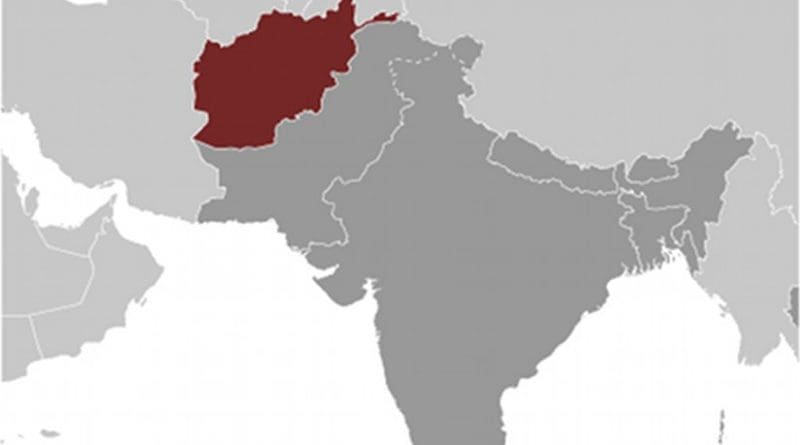Academia’s Game Of Thrones In Afghanistan – OpEd
It has almost been a year since the Oxford University Press published a book entitled ‘The Social Science Goes to War’. A large portion of the book is devoted to the Anthropologists’ anecdotes in Afghanistan and their experience of conducting research in army units with complicated military acronyms such as COA, 1Z1, 1Z13, BCT JDAM and so on and so forth. The book includes a collection of detailed stories about how academic experts, from the fields of anthropology, sociology and political science, supported the military in the areas of operation, and how their knowledge was as important to the soldiers as being protected by armor. The stories continue to admire the social scientists who put their life in jeopardy by being under fire: helmet in one hand and research papers in another rushing into the middle of the frontline where the remains of the burning cars are, perhaps, a part of a dramatic Mise-en-scène.
‘The Social Science Goes to War’ begins with two questions. The first question is “how is it possible to deter one’s enemy without knowledge of what they hold dear?” and the second question is “how is it possible to achieve victory unless one understands the adversary’s concept of defeat?” Here, it is not so much the answer in itself that is important to the question, but rather the question that is being asked. For instance, take “how to deter” and “how to defeat” as questions that largely delimit Western scholars’ research on Afghanistan.
Afghanistan in western academia is first and foremost a policy, stratagem and competition between the different ways of formalizing new geopolitics in Central Asia. In other words, how can ISAF structure a civil-military institution in the region? What is the best case scenario for NATO countries in Afghanistan? How can Islam, oil and the Taliban create a new Great Game in Central Asia? Political science books and articles are already replete with examples of such questions. Afghanistan is also connected to many words, expressions and commonly used scientific patterns such as: a ‘Great Game’, ‘Strategic Depth’, ‘Buffer State’, ‘Connector of Regions’, ‘Proxy War’ and ‘Determinant of Geopolitics in Asia Pacific’. For some time now, these collections of conceptions have given birth to an academic perspective in social science that defines Afghanistan as a ‘game’. However, gamification and a strategy-based analysis about Afghanistan propagate a vast array of stereotypical images of Afghanistan including a perception of an unruly land with mysterious inhabitants over which great kings vie for supremacy.
The depiction of Afghanistan as the game of superpowers is the main area of argument in Western studies. The necessary, practical and strategic information about Afghanistan forms the content of a considerable number of scientific publications. It is worthwhile to remind that this specific type of knowledge is often utilized through academic and military partnership. The University of Nebraska Omaha’s Center for Afghanistan Studies is perhaps the best example of a partnership between academy and military apparatus. This center is equipped to train the American diplomats, security advisors and U.S. army corps on Afghan culture and language. During the mid-1980s, the center received $51 million from the United States Agency for International Development (USAID) in order to provide textbooks for Afghan schoolchildren, so that the Afghans would become indoctrinated against the Soviet Union, and Afghan curriculum would involve dehumanization of the America’s rival superpower, furthermore, the Jihad and martyrdom would be able to be celebrated and meet the strategic needs of the United States in Afghanistan. One copy of the book was recently donated to the National Army Museum (NAM) in London. The author of the article also had a privilege to travel to one of the remote villages in Eastern Afghanistan and happened to come across a few chapters of this book. A translation of its ‘alphabet-learning’ from Pashtu to English is as the following:
Ti (T) like Tufang (Gun)
Jim (J) like Jihad.
Jihad is an order. My mom performed jihad… Our brother gave water to the Mujahidin.
Dal (D) like Din (Religion)
Our religion is Islam. The Russians are the enemies of the religion of Islam.
Vav (V) like Vatan (Nation)
Our nation is Afghanistan… The Mujahidin mad our country great … Our Muslim people are defeating the communists.
This is the story of academia’s game of thrones in Afghanistan, a story that can best be described in ‘A Song of Ice and Fire’ where ‘Westeros’, a fictional continent, is largely interwoven with different strategic plots and dynastic wars against the backdrop of the kings’ fear of the mysterious Others beyond the northern borders, and the kings’ aspiration to seize the ‘Iron Throne’. Along the same lines of this story, Afghanistan has been constructed, represented and articulated according to the similar logic of gameification in which this country is first and foremost a pawn in the game of intelligent stratagems. However, Afghanistan as a land of intrigue and strategy reminds us how and why Afghan lifeworld is systematically forgotten. In other words, the ‘Grate Game’ of western academia is reminiscent of the ignorance to understand Afghanistan’s reality, politics and history.
* Nima Zahedi Nameghi, PhD student in the Department of Sociology at Laval University, and the researcher for Centre Interdisciplinaire de Recherche sur l’Afrique et le Moyen – Orient (Interdisciplinary Center for Research on Africa and the Middle East)

